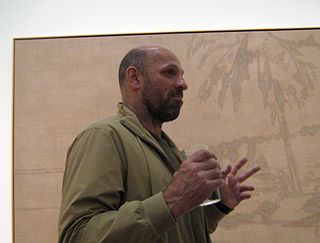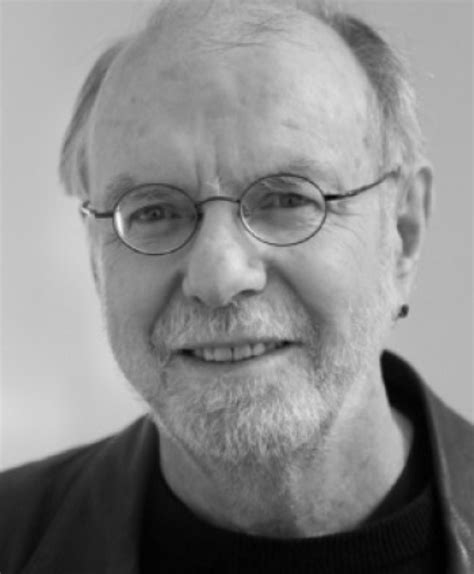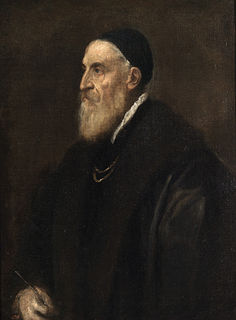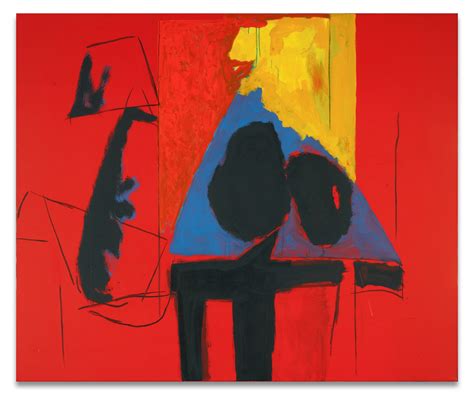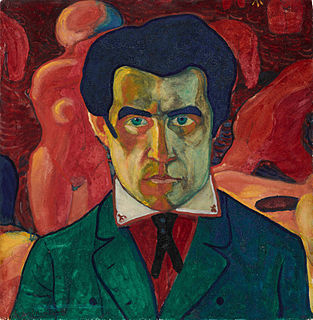A Quote by Herbert Read
This is the essential distinction--even opposition--between the painting and the film: the painting is composed subjectively, thefilm objectively. However highly we rate the function of the scenario writer--in actual practice it is rated very low--we must recognize that the film is not transposed directly and freely from the mind by means of a docile medium like paint, but must be cut piece-meal out of the lumbering material of the actual visible world.
Related Quotes
Painting is an illusion, a piece of magic, so what you see is not what you see. I don't know what a painting is; who knows what sets off even the desire to paint? It might be things, thoughts, a memory, sensations, which have nothing to do directly with painting itself. They can come from anything and anywhere.
Distinction between species and specimen is very much like the distinction between images and actual pictures, or, you know, objects that have a definite material identity. The classifications, the categories, the stereotypes, and the images are on one side, and the material pictures, statues, texts, and so forth are on the other.
Not every painter has a gift for painting, in fact, many painters are disappointed when they meet with difficulties in art. Painting done under pressure by artists without the necessary talent can only give rise to formlessness, as painting is a profession that requires peace of mind. The painter must always seek the essence of things, always represent the essential characteristics and emotions of the person he is painting.
While it may seem a little mundane, the material realities of realizing the painting actually have a lot to do with how you should read the painting. For example, we assume that what the model is wearing is what we found him in in the streets. No; in fact, a lot of what happens is that in Photoshop certain aspects are being heightened or diminished. There is no actual material truth in these paintings.
I regard photography and film simply as new technical means which painters must absolutely make use of, just as from time out of mind they have made use of brush, charcoal and color. It is certain, however, that photography and film must become as evocative for the sensibility as pencil, charcoal and brush. (1927)
Until film is just as easily accessible as a pen or pencil, then it's not completely an art form. In painting, you can just pick up a piece of chalk, a stick, or whatever. In sculpture, you can get a rock. Writing, you just need a pencil and paper. Film has been a very elitist medium. It costs so much money.
I like painting because it's something I never come to the end of. Sometimes I paint a picture, then I paint it all out. Sometimes I'm working on fifteen or twenty pictures at the same time. I do that because I want to - because I like to change my mind so often. The thing to do is always to keep starting to paint, never finishing painting.
Painting is traditional but for me that doesn't mean the academy. I felt a need to paint; I love painting. It was something natural - as is listening to music or playing an instrument for some people. For this reason I searched for themes of my era and my generation. Photography offered this, so I chose it as a medium for painting.


